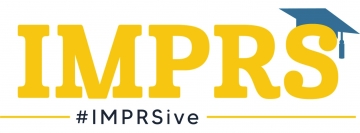Sandra on a supportive workplace
Name: Sandra Bethke
Department: Psychology of Language
Research: How individual differences in language processing are (not) used in conversation
Started at the IMPRS: 2021
Nationality: German
How did you come to pursuing your research topic in Nijmegen?
I’m one of the few “pure” linguists at this institute, with a Bachelor’s and Master’s degree in Linguistics. During my postgraduate studies at HHU Düsseldorf, I soon focused on experimental research in psycholinguistics, while simultaneously working a part-time job in HR. Reading a paper on individual differences in morphological processing completely changed my way of thinking about the field, so I started networking with researchers interested in the same topic - individual differences in language processing - which, ultimately, led me to the MPI.
What are some of the highlights of your doctoral life so far?
It’s easy to feel overwhelmed in a place where everyone is on top of their game. However, this also means that there are plenty of opportunities to grow and learn from one another. My previous working experiences have taught me that any job is really just as good as its team, so it was very important for me to become part of a supportive working environment. That does not only limit itself to my fellow PhDs, but also includes the support staff at the institute as well as my supervisors. We’re a team – we thrive, but also struggle together.
We’re a team – we thrive, but also struggle together
What advice do you have for peers or those considering doctoral studies?
First: never choose an institution or supervisor for their name. Contact potential supervisors who are interested in the same research topics and have at least a chat. If you vibe, they are the right choice. You don’t want to spend the next few years working with someone who doesn’t get you.
Second: communication is key. You will not always be on the same page with your supervisor(s), which is totally fine. However, it is easy to avoid potential miscommunications if you clearly communicate your needs and expectations from the start, but also ask what is expected of you in return.



Share this page